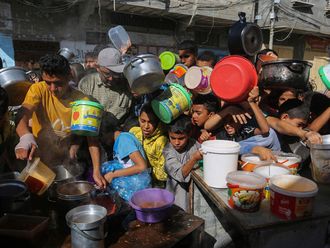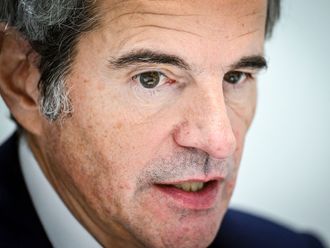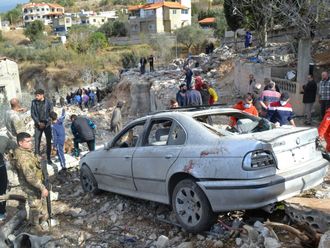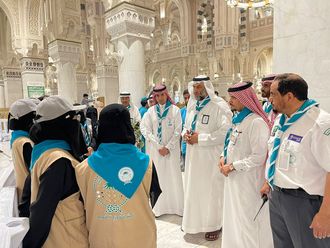Vienna: Iran has the technical capability to make a nuclear weapon and its atomic activities do not seem to be slowing down, a scientific report said, contradicting US assessments that Tehran's programme has suffered setbacks.
The findings, published on Friday by the Federation of American Scientists (FAS) as world powers and Iran held talks in Istanbul, may fuel new debate on whether Tehran's work is facing major problems or not.
"Calculations based on IAEA (International Atomic Energy Agency) data show that Iran has increased its enrichment performance over the past year," said Ivanka Barzashka, an FAS research associate.
"Contrary to statements by US officials and many experts, Iran clearly does not appear to be slowing down its nuclear drive."
Enriched uranium can be used to fuel power stations, Iran's stated ambition. It can also provide material for atom bombs if refined much further, which is what the West suspects the Islamic Republic is ultimately aiming for.
US Secretary of State Hillary Clinton said this month that sanctions had set back Iran's nuclear programme, giving the powers more time to persuade it to change tack.
Her comments were the first public US assertion that Iran's nuclear project had been slowed down.
Earlier this month, Israeli intelligence assessments said Israel now believed Iran would not be able to produce a nuclear weapon before 2015 and that a top Israeli official had counselled against pre-emptive military action.
This signalled new confidence in US-led sanctions and other measures designed to discourage or delay Iran's nuclear drive. Some analysts saw that as a sign of reduced risk that the dispute would escalate into a military conflict any time soon.
Capacity boosts
Analysts say Iran's nuclear work has been experiencing technical difficulties for several years, partly because it is using enrichment centrifuges adapted from a smuggled 1970s European design which is prone to overheating and vibration.
Tougher trade and other sanctions may make it harder for Tehran to obtain the material and equipment needed to manufacture more advanced and reliable centrifuges.
Possible sabotage, such as the Stuxnet computer worm which may have targeted Iran's centrifuge machines, could also be a factor.
In addition, Iran has blamed the West and Israel for the killing of two nuclear scientists last year, a charge Washington has rejected as "absurd".
"Iran's nuclear programme is suffering mounting setbacks, which in turn will provide more time for diplomacy and reduce the imminence of military strikes," said proliferation experts David Albright and Andrea Stricker.
"But predicting when Iran might obtain nuclear weapons is highly uncertain," Albright and Stricker, of the US-based Institute for Science and International Security (ISIS), wrote.
But Barzashka, the FAS researcher, said total uranium enrichment capacity at Iran's Natanz site increased last year, potentially reducing the time needed to make weapons-grade material.
"The boost in capacity is due to an apparent increase in centrifuge performance," her report said, adding it was not clear what had caused it.
Barzashka said there was "no question" that Iran had the technical capability to make a nuclear weapon, if it chose to.
"But there is still ambiguity regarding Iran's intentions. Tehran could, at minimum, be interested in maintaining the option of developing nuclear weapons in the indefinite future."











